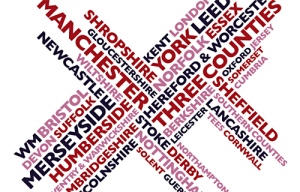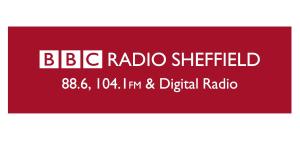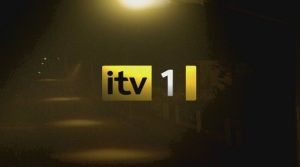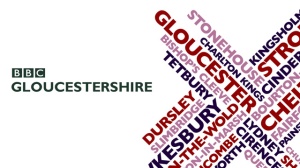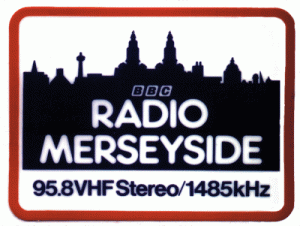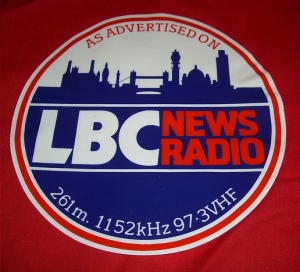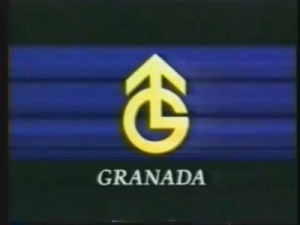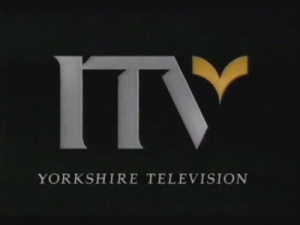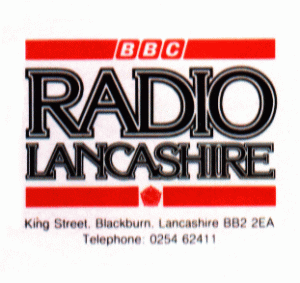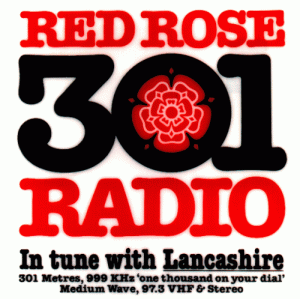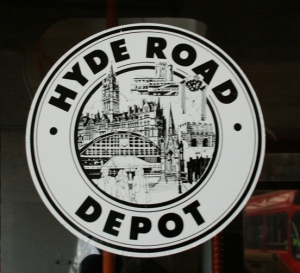“Hey Max, coming to the pub?”
“Yeah, give me two minutes. I’ve just got to redesign all 40 of the UK’s BBC Local radio station logos, and I’ll be right there Kenneth!”
Although that was a fictional scenario that I just made up, it might not be too far away from the actual truth. The BBC is a powerhouse of creativity, and we all know that it has a bottomless pit of money. But judging by the limited imagination, flair and originality on display with the current BBC Local branding – perhaps the “2 minutes to design all 40 logos” is a fair assessment. And it begs the question – how long did its predecessor (below) take to come up with?
But surely our Cities are different aren’t they, and have their own special identity, don’t they?
Actually, since the decade of the 2000’s (are we allowed to call them the noughties yet?) our Cities and Regions are becoming more and more generic and undistinguishable from the next. It seems that no matter where you are in the country, everything is exactly the same!
If you don’t get what I mean, take a look at this.
Happen thats your “independent local radio” stations logo?
Or is it this one?
Perhaps your local bus looks like this? (Despite this one being in Aberdeen)
Weekly free local newspaper logo?
What about your local commercial TV channel?
Local BBC Radio station?
You see my point. Its awfully sad that our local, civic and regional characteristics are slowly being eroded as our once proud, colourful and exciting regional identities all morph into one easy to manage corporate identity. Look at this for a cracking BBC local radio logo from the 1970’s and 80’s – simple, but proud, local and relevant – still to this day.
I wonder if Londons LBC Radio bosses saw that iconic logo and asked their designers to replicate it with this one…
Each of our cities and districts has its own story to tell, its own heritage to celebrate and protect. With this in mind, I have dug out a few nostalgic logos that remind me of the good old days when our (northern) regions stood proudly independent, away from centralisation, globalisation and with a strong sense of self. I hope they fetch you some pleasant memories of life before the “one logo/one brand fits all” trend started to fragment our local and regional character.
The iconic Granada TV logo, at one time this simple G with an arrow sticking out of the top was the pride of the north.
From just across the Pennines, another proud and strong regional TV identity. So much better and personalised than the plain old ITV 1 branding. Its a good-en this’sen.
Another fine example of BBC Local Radio logo design, from a time long before Max was led off to the pub by Kenneth. Note the Red Rose of Lancashire detail, and below – Prestons ILR Red Rose Radio’s logo was built up around the countys heritage and traditions. Nowadays, its nondescript, bland and insipid name is “Rock FM.” Guh.
Lets just hope that our regional accents can withstand the genericalisation of our regions. Judging by the red squiggly line that has just appeared beneath that word, I think I may have just invented it. Sort of.
Fashions change, and hopefully soon the BBC’s well paid and spoilt graphic designers will realise that rushing off to the pub isn’t the most productive thing to do, especially when they have 40 uniquely and geographically different radio stations that they could create a “local, vibrant and really relevant identity” for.
This is a cute little car sticker for Radio Manchester from the 1970’s, when the BBC suddenly found itself competing in the local radio market, against the newly commissioned commercial stations. According to what this terrific graphic suggests – BBC Manchester was up against the “duller” station – Piccadilly Radio 261. Got to love that Manchester’s most distinguishing feature of the day was its weather! Some things haven’t changed.
Back in the late 1980’s GM Buses, the (orange, brown and white) bus operator for Greater Manchester at the time – commissioned a special badge for each of their bus depots, to go on each bus from that depot. The idea was to celebrate the iconic buildings and facilities within their respective area of Greater Manchester, and to demonstrate their localness. There were 12 badges in all, but unfortunately this one is all that I can find on Google.
I’d like to think that this kind of attention to detail, and civic pride can one day return to our areas. Its good to feel proud of where you come from. Without that, we might as well just live anywhere, and use a McDonalds “M” logo as the generic, soulless badge of our seemingly desperate, sanitised, consumer led existence.
CLICK HERE to read about Steve’s 5 star rated novel, The Clitheroe Prime Minister
